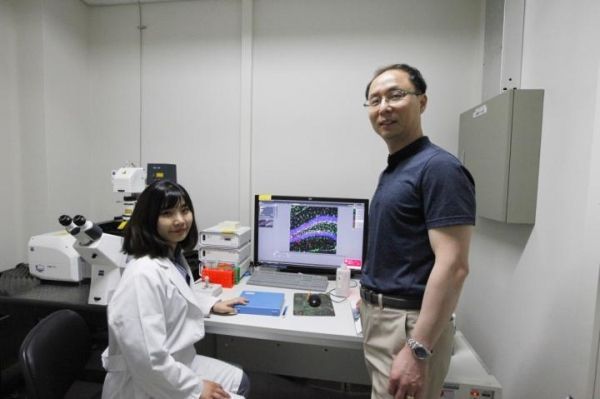DGIST announced on July 2 that Professor Seong-Woon Yu’s team in the Department of Brain and Cognitive Sciences discovered that chronic stress causes autophagic death of adult hippocampal neural stem cells (NSCs). These findings are expected to open up new strategies for combatting stress-associated neural diseases.
Chronic stress is infamous for its association with various mental diseases such as depression and schizophrenia that have become very serious social problems. Stress can even raise the risk of neurodegenerative diseases, such as Alzheimer’s disease. However, the exact mechanisms underlying damages of brain functions have not been well known yet. While the previous animal studies found that generation of new neurons is much less in stressed mice, apoptosis1, a well-known cell suicide pathway was not found in NSCs, leading to a conclusion that cell death is not related with loss of NSCs during stress. Thus, the cause of decline in adult neurogenesis2, which is generation of new neural cells in the adult brain, specially in hippocampus, has remained .
Professor Yu’s team discovered for the first time that chronic stress causes autophagic death of adult hippocampal NSCs. Autophagy (self-eating in Greek) is a cellular process to protect cells from unfavorable conditions through digestion and recycling of inner cell materials, thereby cells can remove toxic or old intracellular components and get nutrients and metabolites for survival. However, autophagy can turn into self-destruction process under certain conditions, leading to autophagic cell death. Autophagic cell death is a form of cell death distinguished from apoptosis by the causative role of autophagy for cell demise. Using the NSCs derived from rodents and genetically-modified mice, the research team discovered that the death of hippocampal NSCs is prevented and normal brain functions are maintained without stress symptoms when Atg7, one of the major autophagic genes, is deleted.
Read more at DGIST (Daegu Gyeongbuk Institute of Science and Technology)
Image: Professor Seong-Woon Yu in the Department of Brain and Cognitive Sciences at DGIST (right), Seonghee Jung in the M.S.-Ph.D. Integrated Program in the Department of Brain and Cognitive Sciences at DGIST (left) (Credit: DGIST)


